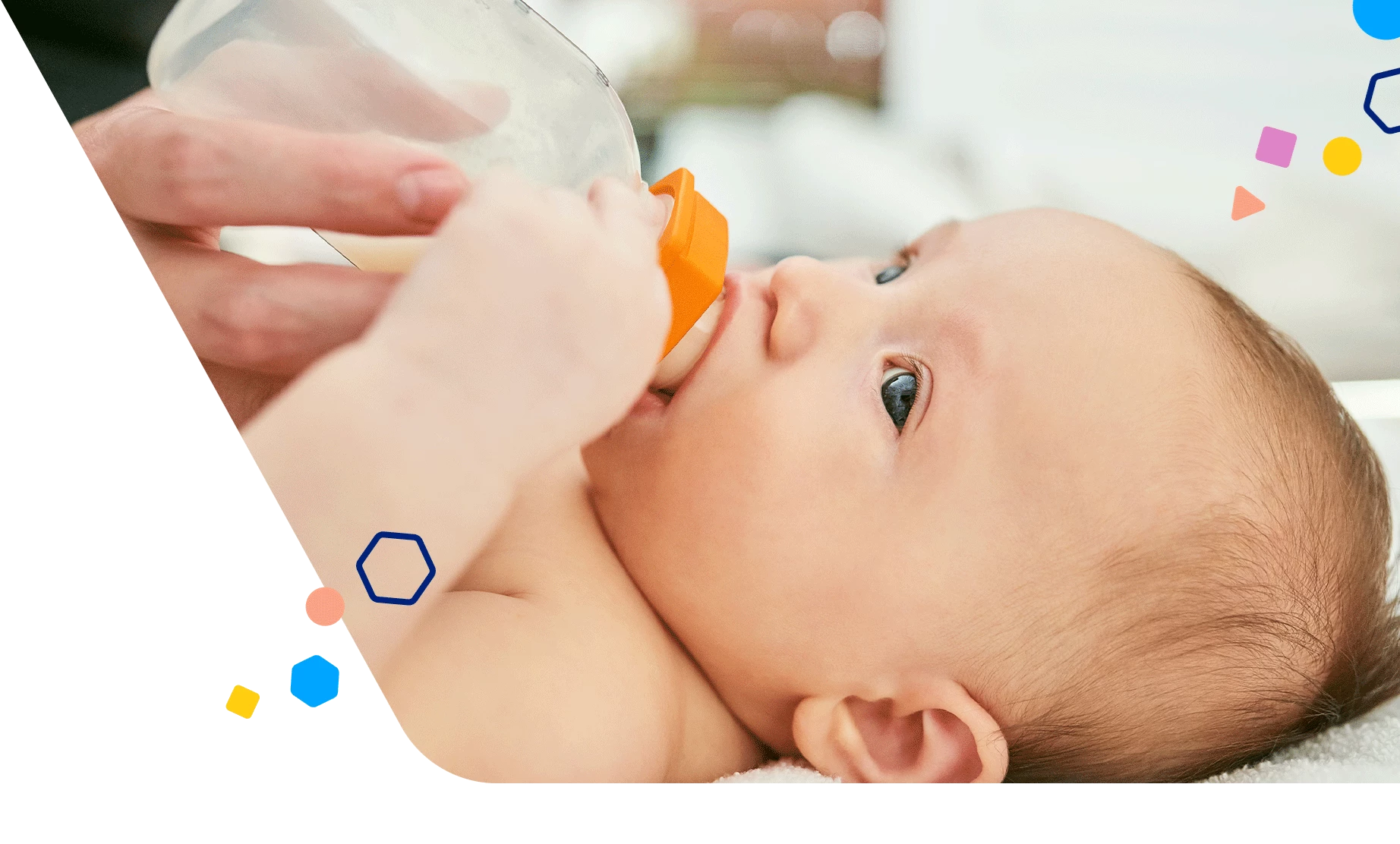Looking for baby formula offers? Get up to $400 in free gifts for you and your baby. Join Now.
Breastfeeding Elimination Diet
When you nurse, some of the nutrients from the foods you eat are passed along to your baby in breast milk. That means when you consume a food that contains dairy, your infant may be exposed to allergenic fragments of cow's milk protein. But this is not a reason to stop nursing. Breast milk provides the best nutrition for your baby. Instead, your doctor will likely suggest eliminating all dairy products from your diet.
Milk and milk products such as yogurt and cheese are obvious sources of dairy, but other foods like breads, cereals, and salad dressings can contain milk too. You will have to read labels carefully for hidden milk ingredients like casein and whey. You may need to be dairy-free for two weeks or longer before your baby's allergic reactions subside. Even then, you will need to remain dairy-free until your baby is completely weaned off breast milk or until your doctor recommends reintroducing cow's milk protein into your baby's diet. Do this only under a doctor's supervision.
Formulas Recommended for Infants with Cow's Milk Allergy
It's the cow's milk protein in routine infant formulas that causes allergic reactions in infants with cow's milk allergy. Hypoallergenic formulas are specially formulated to reduce an infant's risk of allergic reactions to cow's milk protein. The two types of hypoallergenic formulas recommended for infants with cow's milk allergy include extensively hydrolyzed formula and amino acid-based elemental formulas for more severe allergies.
Extensively Hydrolyzed, Hypoallergenic Formula
Proteins are made of numerous amino acid compounds linked together to form long chains. The immune system of a baby with cow's milk allergy mistakenly sees some cow's milk protein chains as harmful, and allergic reactions occur as it tries to fight them off. Imagine breaking apart these long protein chains into lots of smaller chains composed of only a handful of linked amino acids. That's what the cow's milk protein in our hypoallergenic baby formula looks like. The cow's milk protein chains in extensively hydrolyzed, hypoallergenic formulas are so thoroughly broken into tiny pieces (what's known as hydrolyzed) that the immune systems of most infants with cow's milk allergy no longer recognize the milk protein as a threat. Extensively hydrolyzed, hypoallergenic formulas also are recommended for infants who have skin conditions like eczema due to cow's milk allergy, as well as infants who have a strong family history of multiple allergies to foods, including cow's milk, soy, eggs, wheat, peanuts, tree nuts, and fish.

Amino Acid-Based Elemental Formula
Rarely, an infant with cow's milk allergy reacts severely to cow's milk protein. These babies need a hypoallergenic formula made with the individual building blocks of protein: amino acids. Unlike routine infant formula where hundreds of amino acids link to form long chains of cow's milk protein, or extensively hydrolyzed formula where fewer amino acids link to form small protein chains, amino acid-based formula has no milk protein chains. The protein in these formulas are in their simplest form (what's known as elemental) and are composed of individual amino acids, the compounds that form proteins. An amino acid-based elemental formula like PurAmino™ contains no cow's milk protein and is prescribed for infants who experience severe reactions—serious breathing difficulties, hives, and anaphylactic shock—to cow's milk protein. Amino acid-based elemental formulas also are recommended for infants with multiple allergies to foods, including cow's milk, soy, eggs, wheat, peanuts, tree nuts, and fish.
Products Not Recommended for Infants with Cow's Milk Allergy
With so many infant formulas on the market, it can be difficult to figure out which one is best for a baby with cow's milk allergy. You should always follow your doctor's advice. In general, though, the following formula types are not recommended for infants with cow's milk allergy:
Partially Hydrolyzed Formula
Partially hydrolyzed formulas might seem like a good option for babies with cow's milk allergy because they're designed to relieve two symptoms: fussiness and gas. But even though the cow's milk protein chains in these formulas are partially broken down or hydrolyzed, they're still big enough to cause allergic reactions in infants with cow's milk allergy (that means these formulas are not hypoallergenic). For babies who don't have cow's milk allergy, a partially hydrolyzed formula like Enfamil® Gentlease® is designed to ease fussiness and gas within 24 hours.
Soy-Based Formula
If a protein in cow's milk is bothering your baby, it might seem like a good idea to switch to a formula that isn't made from dairy, such as one made with soy protein. However, half of babies with cow's milk allergy also are allergic to soy. What's more, soy formula hasn't been proven to ease colic in babies with cow's milk allergy, nor does it help these infants develop a tolerance for cow's milk protein. A soy-based formula like Enfamil® ProSobee® is typically recommended for infants who are lactose intolerant, meaning they can't digest a natural sugar in milk called lactose.
Other Milk Sources
Formulas made with goat's or sheep's milk are not recommended for infants with cow's milk allergy because their milk proteins are very similar to cow's milk protein and can cause allergic reactions. Other milks made from soy, oats, almonds and rice are not nutritionally complete and should not be given to infants.
*LGG is a registered trademark of Chr. Hansen A/S.
†Studied before the addition of DHA, ARA, and LGG.

